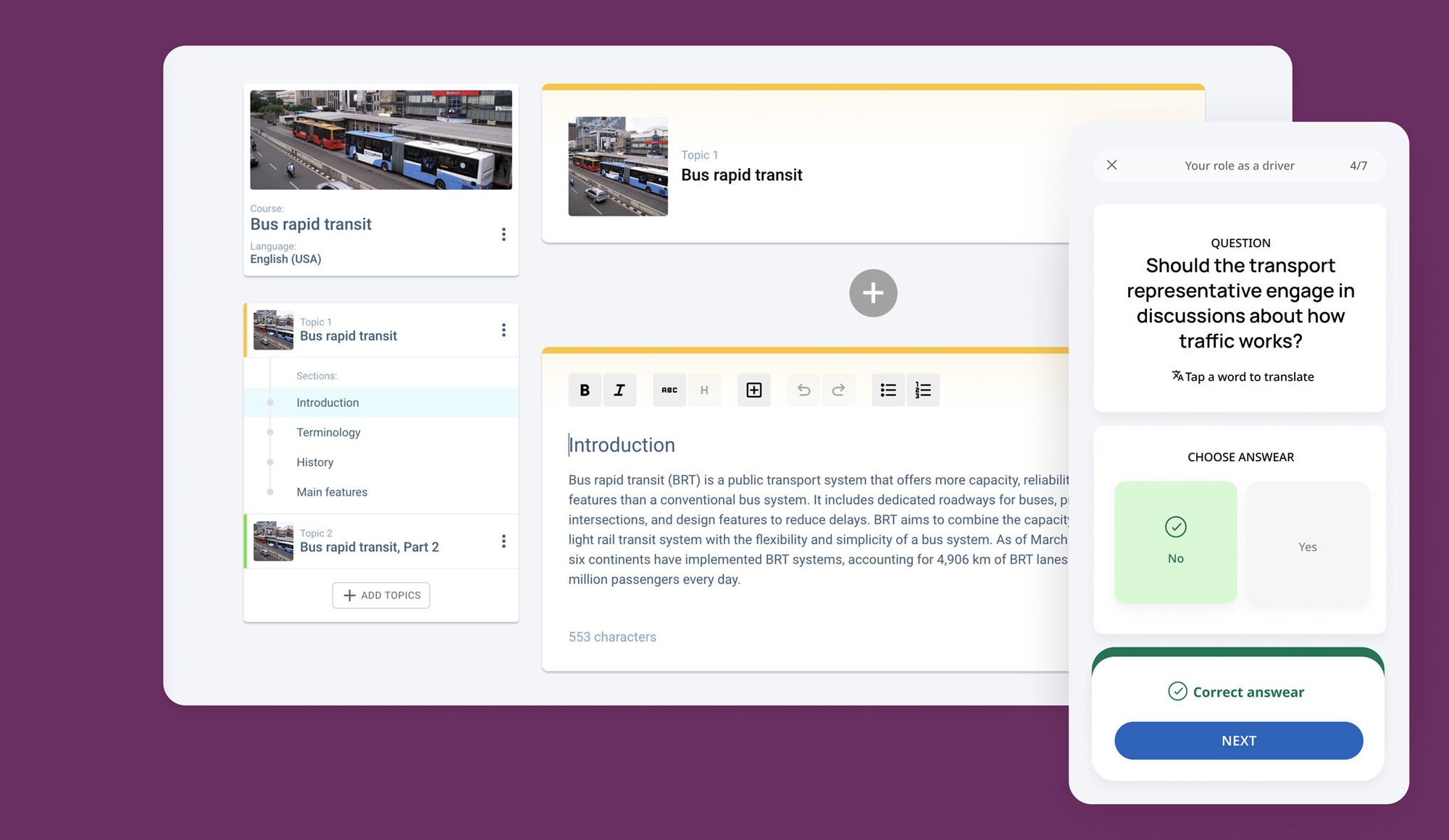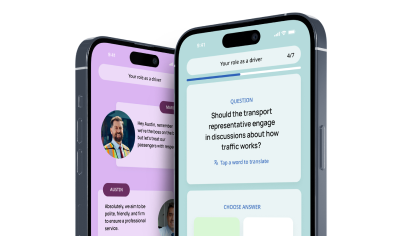As a hotelier, ensuring the safety and well-being of your guests is of the utmost importance. One way to achieve this is by providing first-aid training for your hotel staff. You can enhance your establishment's overall safety and security by equipping your employees with the necessary skills and knowledge to respond effectively in emergencies. In this article, we will share ten recommendations on implementing a comprehensive and effective basic first-aid training program for the hospitality industry.
Importance of first aid training for hotel staff
First aid training is essential for hotel staff as they frequently interact with guests and are often the first point of contact during emergencies. By having a well-trained team, you can ensure prompt and efficient response to any medical situation. From minor injuries to life-threatening incidents, a trained staff member can provide immediate assistance, minimising the impact and potentially saving lives.
Moreover, in a hotel setting, where guests come from various backgrounds and may have different medical needs, having staff trained in first aid can make a significant difference. They can cater to specific requirements, such as allergies, chronic conditions, or special needs, ensuring that all guests receive the necessary health care even in an emergency.
Furthermore, first medical help training goes beyond just medical emergencies. It also equips staff with the skills to handle unexpected situations like slips, trips, falls and head injuries that are common in a hotel environment. By knowing how to assess and respond to these incidents, hotel staff can create a safer environment for guests and colleagues, reducing the risk of accidents and injuries.
Tip 1: Conduct regular training sessions
Regular training sessions are crucial for refreshing and reinforcing your staff's knowledge and skills in the hospitality industry. Consider conducting these sessions at least twice yearly to ensure all employees are updated with the latest first-aid techniques and protocols. This will help maintain a high level of preparedness and confidence among your team.
Furthermore, by organising regular training sessions, you create a culture of continuous learning within your organisation. This benefits the individual employees in terms of personal development and contributes to the company's overall growth and success. Employees who feel supported and invested are more likely to be motivated and engaged in their roles, leading to higher productivity and job satisfaction.
Tip 2: Focus on basic life support skills
Basic life support skills form the foundation of any effective first-aid response. Ensure that your training program covers topics such as cardiopulmonary resuscitation (CPR), choking management, and the use of automated external defibrillators (AEDs). These skills are vital in critical situations and can significantly save lives.
Cardiopulmonary resuscitation (CPR) is a crucial skill that can help sustain life and minimise the risk of brain damage in cases of cardiac arrest. It involves a combination of chest compressions and rescue breaths to maintain blood circulation and oxygenation to vital organs. Proper training in CPR ensures that individuals can confidently and effectively perform this life-saving technique when needed.
Choking management is another essential aspect of basic life support skills. Choking occurs when the airway is blocked, preventing airflow into the lungs. Prompt and correct intervention is necessary to dislodge the obstruction and restore normal breathing. Training in choking management equips individuals with the knowledge and skills to recognise and respond to choking incidents swiftly and effectively, potentially preventing a life-threatening situation.
Tip 3: Customise training for specific hotel scenarios
Hotels have unique features and potential emergency scenarios that differ from other environments. Tailor your training program to address these specific situations. For instance, emphasise the response to accidents in swimming pools or injuries related to hotel amenities. Your staff will be better equipped to handle hotel-specific emergencies by providing specialised training.
Furthermore, it is crucial to consider the hotel's geographical location when customising training. Hotels situated in coastal areas may need to focus on training staff to deal with water-related emergencies such as rip currents or jellyfish stings. On the other hand, hotels located in urban areas require training in handling situations like traffic accidents or medical emergencies in a bustling city environment.
Tip 4: Include training on common injuries and illnesses
Hotel staff should be familiar with the most common injuries and illnesses that guests may experience. This includes understanding how to handle burns, falls, allergic reactions, and other medical incidents. Educating your team on these issues will prepare them to respond promptly and appropriately when faced with such situations.
Moreover, hotel staff must be well-versed in basic first-aid techniques. These can range from knowing how to appropriately dress a wound to performing CPR in emergencies. This knowledge not only instils confidence in the staff but also ensures the safety and well-being of the hotel and school staff and guests.
Furthermore, it is beneficial to conduct regular training sessions that simulate real-life scenarios to test the staff's reactions and decision-making skills under pressure. This hands-on approach can help employees feel more confident and competent in handling unexpected medical emergency situations, ultimately enhancing the overall guest experience and safety within the hotel premises.
Tip 5: Emphasise the Importance of Mental Health First Aid
While physical health emergencies are commonly associated with basic life support techniques, mental health emergencies can also occur within a hotel setting. Train your staff to recognise signs of distress and provide appropriate support to guests who may be experiencing mental health challenges. By incorporating mental health first aid into your training program, you can create a more inclusive and supportive environment.
Hotel staff must understand that mental health first aid is as crucial as physical first aid. Guests may face a range of mental health issues such as anxiety, depression, or even more severe conditions like psychosis. Recognising these signs early and responding with empathy and understanding can significantly impact the guest's experience and well-being during their stay.
Moreover, offering your staff mental health first aid training benefits not only the guests but also the hotel employees. Working in the hospitality industry can be demanding and stressful, and having the skills to support guests' mental health can also help them manage their own well-being. By fostering a culture of mental health awareness and support within your hotel, you are enhancing the guest experience and creating a healthier work environment for your staff.
Tip 6: Use interactive and hands-on training methods
Engage your staff during training sessions by using interactive and hands-on methods. Incorporate practical exercises, simulations, and role-playing scenarios to give employees firsthand experience managing emergencies. This approach enhances learning, boosts confidence, and ensures better retention of essential skills.
Interactive training methods can include group discussions where employees can share their experiences and learn from each other. This fosters a collaborative learning environment where team members can support each other and develop a deeper understanding of the subject matter. Hands-on training, such as mock drills or real-life scenario simulations, allows employees to apply their knowledge practically, preparing them for real-world situations.
Furthermore, incorporating interactive elements into training sessions can make the learning process more enjoyable and engaging for employees. By actively participating in activities and exercises, staff members are more likely to retain information and feel motivated to apply their new skills in their roles. This approach not only benefits individual employees but also contributes to a more dynamic and skilled workforce as a whole.
Tip 7: Ensure accessibility of first aid supplies
Having well-stocked and easily accessible first aid tools and supplies is vital for an effective response. Ensure that first aid kits are strategically placed throughout the hotel, including high-traffic areas, guest rooms, and recreational facilities. Additionally, regularly check and restock supplies to ensure they are always ready for use.
When stocking first aid supplies, it is also important to consider guests' specific needs. For example, guests with allergies may require antihistamines, or guests with chronic conditions may need specific medications. By catering to diverse potential needs, you can ensure that your first aid supplies are comprehensive.
Furthermore, training staff members on the location of first aid kits and how to use the supplies effectively is advisable. This can help ensure a prompt and efficient response in case of emergencies. Regular training sessions and drills can also help familiarise staff with emergency procedures, enhancing overall preparedness for emergency services.
Tip 8: Train staff on emergency protocols and communication
Effective communication during emergencies is crucial for a coordinated and efficient response. Train your staff on emergency protocols, including how to alert the appropriate authorities and contact medical professionals promptly. Encourage transparent and concise communication between team members to ensure that information is relayed accurately and quickly.
Furthermore, it is essential to conduct regular drills and simulations to practice these emergency protocols. By simulating various emergency scenarios, staff members can familiarise themselves with the procedures and improve their response times. This hands-on training can help employees feel more confident and prepared in emergencies.
Moreover, consider appointing specific team members for designated roles during emergencies. Designating responsibilities such as a communication coordinator, first aid provider, or evacuation leader can streamline the response process and ensure that each aspect of the emergency plan is executed effectively. By assigning roles in advance, you can prevent confusion and provide a more organised and efficient response to any unforeseen situation.
Tip 9: Provide certification and encourage continuous learning
Provide employees with certifications to recognise their effort and dedication to completing the first medical help training program. This rewards their commitment and demonstrates your hotel's commitment to safety and preparedness. Encourage continuous learning by offering a refresher course or certified online course or providing access to educational resources that allow staff to stay updated on best practices in first aid.
Furthermore, hosting regular first-aid workshops and seminars can create a culture of continuous improvement within your hotel staff. These events serve as valuable opportunities for employees to refresh their skills and exchange knowledge and experiences with their colleagues. By fostering a community of learning and collaboration, your hotel can ensure that its first medical help procedures are always up to date and in line with industry standards.
In addition, consider establishing a recognition programme for employees who consistently demonstrate exceptional first medical help skills or go above and beyond in emergencies. This can motivate staff to actively engage in further training and development, knowing their efforts will be acknowledged and celebrated in the workplace. By celebrating excellence in first aid response, your hotel can inspire a culture of continuous improvement and a strong focus on guest safety and well-being.
Tip 10: Evaluate and update training programs regularly
Regularly evaluate the effectiveness of your training programs and make necessary updates based on feedback and emerging trends. Seek input from staff members to identify areas for improvement and address any knowledge gaps. Continually refining your training program ensures your staff has the most relevant and practical skills.
When updating training programs, it is essential to consider your industry's evolving landscape. Industry trends and technological advancements can significantly impact the skills required for employees to perform their roles effectively. By staying abreast of these changes and incorporating them into your training programs, you can future-proof your workforce and maintain a competitive edge.
Furthermore, when evaluating training programs, it is beneficial to utilise various assessment methods. These could include conducting surveys, observing employee performance, and analysing training completion rates. By gathering data from multiple sources, you can gain a comprehensive understanding of your training initiatives' strengths and weaknesses, allowing you to make informed decisions about where improvements are needed.
Bonus tip: Work with AI-driven courses for hotel staff
Take advantage of technological advancements by considering AI-driven certified online courses for hotel staff. These courses can provide interactive and personalised training experiences, allowing employees to learn independently. By incorporating technology into your training program, you can enhance engagement and ensure higher knowledge retention.
AI-driven courses use machine learning algorithms to adapt employee's learning styles and preferences. This personalised approach not only increases the effectiveness of the training but also boosts motivation and job satisfaction among staff members. Furthermore, by analysing data on employee performance and learning patterns, AI can help identify areas for improvement and tailor future training sessions accordingly.
Imagine a new hotel employee being introduced to an AI-driven course that simulates real-life guest interactions. Through this virtual training, the employee can practice handling various customer scenarios in a risk-free environment, from check-in procedures to resolving complaints. This hands-on experience builds confidence and ensures that the staff member is well-prepared to deliver exceptional service when faced with similar situations in the workplace.
The most common medical incidents for hotel staff
Hotel staff may encounter various medical incidents during their day-to-day operations. Some common examples include:
- Slips and falls
- Food poisoning
- Allergic reactions
- Cardiovascular emergencies
By being aware of these risks, your staff can respond appropriately and swiftly, providing the necessary support until professional medical assistance arrives.
Slips and falls are prevalent in the hospitality industry due to the fast-paced environment and the constant movement of guests and staff. Hotel staff should always ensure that walkways are clear of any obstacles or spills to prevent accidents. Additionally, providing proper footwear with slip-resistant soles can help reduce the risk of falls, especially in areas prone to wet floors.
Food poisoning is another significant concern for hotel staff, as they are responsible for handling and serving food to guests. To prevent the spread of foodborne illnesses, staff must follow strict hygiene protocols, such as regular handwashing and proper food storage. In a suspected case of food poisoning, staff should be trained to recognise the symptoms and take immediate action to prevent further contamination.
Discover the lingio difference in first aid training
Ready to elevate your hotel staff's emergency preparedness with a training experience they'll love? At Lingio, we blend the power of artificial intelligence, gamification, and expert coaching to create engaging, effective training solutions. Our AI Course Creator has transformed how professionals learn, making skill acquisition captivating. Don't just meet safety standards - exceed them with training that sticks. Book a demo today and witness firsthand how Lingio can revolutionise first-aid training for your team.
FAQs
1. Who should undergo first aid training in a hotel?
All hotel staff members should undergo first pre-medical help training regardless of their specific roles. From front desk personnel to housekeeping staff and restaurant servers, anyone interacting with guests should be adequately trained to provide immediate assistance during emergencies.
2. How long does first aid training take?
The duration of first medical help training can vary depending on the level of certification sought. Introductory online first aid courses usually last one to two days, while more comprehensive courses may last a week. Work with a reputable training provider offering online first medical help courses to determine your staff's most suitable training duration.
3. Can first medical help training help prevent legal liabilities for hotels?
Yes, providing this type of training to your staff can help mitigate legal liabilities by demonstrating your commitment to guest safety. Equipped with the necessary skills, your employees can respond promptly to emergencies, potentially minimising the severity of injuries or illnesses and reducing the likelihood of legal complications.
4. How often should first aid skills be refreshed?
First aid skills should be refreshed regularly to ensure staff members remain competent and confident. Conduct refresher courses at least annually and consider additional training sessions whenever there are significant updates to protocols or advancements in first medical help tools and techniques.
5. Can external training providers customise the training to meet my hotel's unique needs?
Yes, reputable external training providers can tailor their programs to meet your hotel's specific requirements. They can incorporate hotel-specific scenarios and challenges into the training, ensuring that your staff is prepared to handle emergencies unique to your establishment.
8. How do hotels ensure the safety of their guests during emergencies?
Hotels prioritise the safety of their guests by implementing comprehensive emergency response plans. These plans include clear communication protocols, designated assembly points, and well-trained staff members who can provide immediate assistance. By conducting regular drills and training sessions, hotels can ensure that their staff is well-prepared to handle various emergencies, such as fires, medical emergencies, or natural disasters.
9. What are some common first-aid scenarios that hotel staff may encounter?
Hotel staff may encounter a range of first aid scenarios, including guests experiencing allergic reactions, slips and falls, burns, or cardiac emergencies. By receiving proper first aid training, hotel staff can confidently and effectively respond to these situations, providing necessary care until professional medical help arrives. Staff members can also be trained to recognise the signs of potential emergencies, such as identifying symptoms of a heart attack or stroke, allowing for early intervention and potentially saving lives.


Table of contents
Intro
Importance of First Aid Training for Hotel Staff
Tip 1: Conduct regular training sessions
Tip 2: Focus on basic life support skills
Tip 3: Customize training for specific hotel scenarios
Tip 4: Include training on common injuries and illnesses
Tip 5: Emphasize the Importance of Mental Health First Aid
Tip 6: Use interactive and hands-on training methods
Tip 7: Ensure accessibility of first aid supplies
Tip 8: Train staff on emergency protocols and communication
Tip 9: Provide certification and encourage continuous learning
Tip 10: Evaluate and update training programs regularly
Bonus Tip: Try working with AI-driven courses for hotel staff
Most Common Medical Incidents for Hotel Staff
Discover the lingio difference in first aid training.
FAQs

